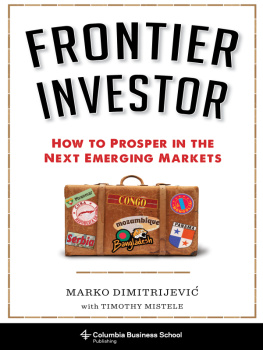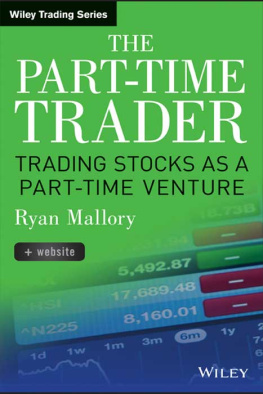PENGUIN BOOKS
THE TRUTH ABOUT MARKETS
Provides another foundation stone for trying different, less arrogant ways of running our companies. The truth about markets is that there are alternatives, after all Observer
Insightful and laconic a delight quite possibly the only book on economics you will ever need to read Accounting & Business
Kay is one of the leading British economists of his generation He gives answers to those puzzling questions that nag the non-specialist. Why are some countries rich and others poor? Why do people doing the same job in Mexico and the US, a few miles apart, get completely different wages? Hamish McRae, Independent
Both a lucid guide and a salutary warning Scotsman
He compares greedy boardroom fat cats to corrupt African dictators. He think anti-globalization protestors are nave and wrong. He takes sideswipes at his old Oxford colleagues and believes Tony Blair could be the best thing for the centre-left since Roosevelt. John Kay sounds like the archetypal polemicist, an economist with attitude, the dismal sciences answer to David Starkey. Wrong on all counts. Kay argues that Keynes was right when he wanted economists to be treated like dentists. They should use their skills to remedy specific problems rather than launch ideological crusades. Grand narratives are out. Gentle probing is in Larry Elliott, Guardian
His explanation of how markets really work is a salutary reminder that the scope for screwing up is greater than the DIY economists imagine and that large scale attempts to interfere with market mechanisms are doomed Time
ABOUT THE AUTHOR
John Kay is a Fellow of St Johns College, Oxford, and a Visiting Professor of Economics at the London School of Economics. He has been Professor of Economics at the London Business School and Professor of Management at the University of Oxford. He has been director of an independent think tank, set up and sold a highly successful economic consultancy business and has been a director of several public companies. He now writes a fortnightly column for the Financial Times.
JOHN KAY
The Truth About Markets
Why Some Nations are Rich but Most Remain Poor

PENGUIN BOOKS
PENGUIN BOOKS
Published by the Penguin Group
Penguin Books Ltd, 80 Strand, London WC2R 0RL , England
Penguin Group (USA) Inc., 375 Hudson Street, New York, New York 10014, USA
Penguin Books Australia Ltd, 250 Camberwell Road, Camberwell, Victoria 3124, Australia
Penguin Books Canada Ltd, 10 Alcorn Avenue, Toronto, Ontario, Canada M4V 3B2
Penguin Books India (P) Ltd, 11 Community Centre, Panchsheel Park, New Delhi 110 017, India
Penguin Group (NZ), Cnr Airborne and Rosedale Roads, Albany, Auckland 1310, New Zealand
Penguin Books (South Africa) (Pty) Ltd, 24 Sturdee Avenue, Rosebank 2196, South Africa
Penguin Books Ltd, Registered Offices: 80 Strand, London WC2R 0RL , England
www.penguin.com
First published by Allen Lane 2003
Published in Penguin Books with new material 2004
10
Copyright John Kay, 2003, 2004
All rights reserved
The moral right of the author has been asserted
Except in the United States of America, this book is sold subject to the condition that it shall not, by way of trade or otherwise, be lent, re-sold, hired out, or otherwise circulated without the publishers prior consent in any form of binding or cover other than that in which it is published and without a similar condition including this condition being imposed on the subsequent purchaser
ISBN: 978-0-14-190975-2
Contents
Part One
The Issues
Part Two
The Structure of Economic Systems
Part Three
Perfectly Competitive Markets
Part Four
The Truth About Markets
Part Five
How It All Works Out
Part Six
Political Economy
Figures, Tables and Boxes
Figures
Tables
Boxes
Acknowledgements
I should like to thank the many people who have helped with this book. Background research extended from the Cro-Magnon cave paintings at Lascaux to the dot.com boom of 19992000, from Auckland to Zanzibar. I am grateful for the help of Magnus Feldmann, Tim Harford, Adrian Lewis, Robert Metz, Scott Reeves, Jorim Schraven and Alex von Tunzelmann. Julian Bene, David Bodanis, Andrew Dilnot, Leslie Hannah, Richard Layard, George Richardson and Bridget Rosewell provided comments on earlier drafts which helped structure the argument more effectively. My agent Michael Sissons and editor Stuart Proffitt helped turn an idea in the autumn of 1999 into a reality in the summer of 2002. And Jo Charrington organized both me and the process of production throughout that period with great calm, efficiency and unvarying good humour. I am grateful to them all.
John Kay
Note to Readers
The superscript N, as in MirrleesN, means the individual referred to has been awarded the Nobel Prize for Economics. The superscript w, as in JOKESw, means that relevant weblinks can be found by visiting http://www.TheTruthAboutMarkets.com and typing JOKES. Other updated material related to this book is also available at this website.
Part One
THE ISSUES
1
Welcome to the World of Bloomberg Television
If you have ever spent a night in one of the international hotels that cater to the travelling businessman or businesswoman, you will have zapped the channels on the hotel television network and reached Bloomberg television, or its almost indistinguishable competitor, CNBC. There is something rivetingly awful about Bloomberg television. It is like a movie so bad you cannot bring yourself to stop watching.
In the right-hand corner of the screen, flashing lights tell you the Dow-Jones index is going up, or down. Across the bottom, there is a constantly moving border of share prices Cisco is up 0.75 on the day. The left-hand section is occupied by talking heads. The producers of Bloomberg television have the unenviable task of filling this space with interviews and pronouncements for twenty-four hours of every day. Bloomberg television never sleeps. Often the talking head is a Bloomberg employee. A man in red braces describes the action on the Bloomberg Big Board with irrepressible excitement.
But frequently the talking head is an economist. I have done it myself. But mostly he or often she works for one of the major securities houses, like Merrill Lynch or Goldman Sachs. The talking head stands before a picture of the firms trading room: Bloomberg gets free programming in return for free advertising. The economist will be answering a question, such as How should we interpret the latest months figures from the National Association of Purchasing Managers? I am not making this up: if you do not believe me, turn on, tune in to Bloomberg television.
Bloomberg television is a visible manifestation of the rise of popular capitalism in the last two decades of the twentieth century. In 1979 a trend which had been characteristic of most of the twentieth century and had continued uninterrupted since the Second World War. This change of direction was reinforced by the collapse of the Russian Empire in Eastern Europe and the disintegration of the Soviet Union. The fall of the Berlin Wall in 1989 symbolized Western victory in the cold war. One of the most extraordinary episodes in the economic history of the world followed.
It was, above all, an American decade. As the Berlin Wall came down, the American political scientist Francis Fukuyama proclaimed the end of history. Fukuyamas article in
Next page










![Ryan Mallory [Ryan Mallory] - The Part-Time Trader: Trading Stock as a Part-Time Venture, + Website](/uploads/posts/book/124134/thumbs/ryan-mallory-ryan-mallory-the-part-time-trader.jpg)

